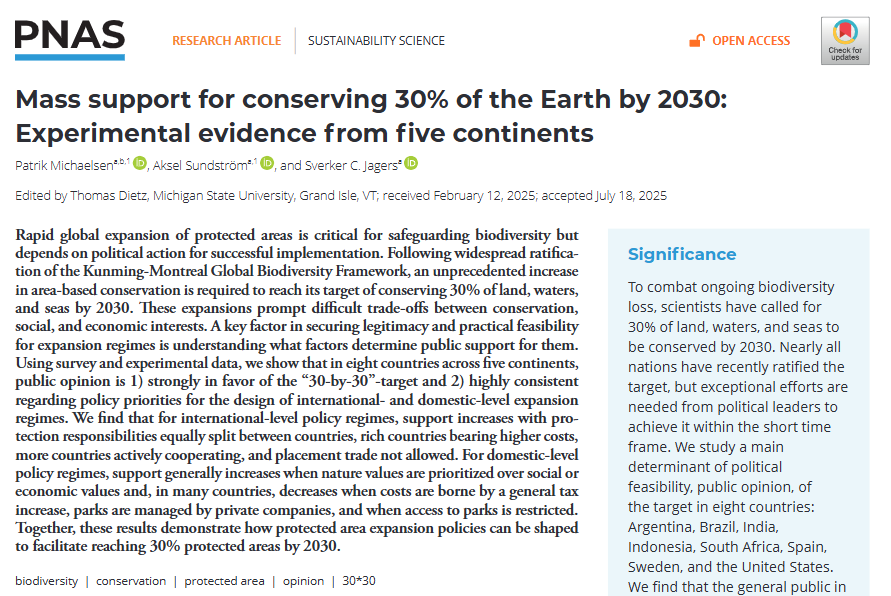I am curious about how individuals make decisions, and in particular what individuals think about attempts at influencing their decision making and behavior. Primarily, I study applications in the environmental domain.
I am an ambassador for the Centre of Open Science and strongly value open science-practices in research.
Current themes:
Biodiversity protection and the 30*30-target
In December 2022, 195 nations (and the EU) signed the Kunming-Montreal Global Biodiversity Framework, including the ambitious Target 3: To conserve 30% of land, waters, and seas by 2030. Realization of the target demands an almost doubling of area-based conservation worldwide, bringing about difficult trade-offs between social, economic and conservation interests. How can politically feasible paths forward be found?
Representative Publications:
How people experience and evaluate nudges – and why it matters
The success of a policy intervention should not be judged only by its behavioral impact or cost-benefit qualities. For welfare, and more, it matters how interventions affect people’s thoughts and feelings – are they left mad, or sad?
Representative Publications:
Are transparent policy interventions less effective? Do people think differently of them?
Government transparency is often considered normatively linked to legitimacy, and expected to influence individual’s perceptions and behavior. Are these empirical assertions correct? Under what circumstances?
Representative Publications:





